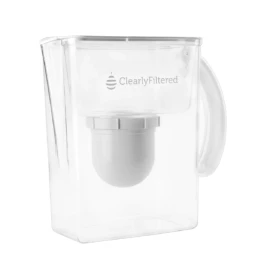As we delve deep into countless medical journals to uncover the latest on Integrative Medicine’s approach to kidney health, we are always reminded of the value of your time. Our commitment remains steadfast in curating and succinctly summarizing these vital studies for you. Welcome to the April Research and News.
Sweetened Beverage Intake and Chronic Kidney Disease Risk in the UK Biobank
In a cohort study utilizing UK Biobank data, researchers examined the link between sweetened beverage consumption and the onset of chronic kidney disease (CKD). Analyzing 127,830 adults without prior CKD, the study assessed the impact of consuming sugar-sweetened beverages, artificially sweetened beverages, and natural juices on kidney health.
The study’s objective was to explore how these beverages affect CKD risk and to assess the potential benefits of substituting these with healthier alternatives like natural juices or water.
Over a median follow-up of 10.5 years, 4459 participants developed incident CKD. The findings revealed that consuming more than one serving per day of sugar-sweetened or artificially sweetened beverages was linked to an increased risk of CKD.
Specifically, sugar-sweetened beverages posed a 19% higher risk, while artificially sweetened beverages showed a 10% to 26% increased risk, depending on consumption levels. Interestingly, natural juice intake did not significantly affect CKD risk, indicating no adverse association.
Substitution analyses suggested that replacing one serving per day of sugar-sweetened or artificially sweetened beverages with natural juices or water could reduce CKD risk, highlighting the potential benefits of healthier beverage choices.
Why this is important
These findings underscore the importance of beverage choices in CKD prevention, suggesting that reducing the intake of sugar-sweetened and artificially sweetened beverages may lower CKD risk. By demonstrating the potential health benefits of substituting these beverages with natural juices or water, this study offers practical dietary guidance for individuals aiming to improve kidney health and prevent CKD.
Given the global prevalence of CKD and its association with increased morbidity and mortality, identifying modifiable risk factors like beverage consumption is crucial for public health strategies and individual dietary recommendations.
Gestational Exposure to Maternal Systemic Glucocorticoids Linked to Childhood CKD Risk
In a retrospective cohort study, investigators explored the potential link between prenatal exposure to maternal systemic glucocorticoids (SG) and the development of chronic kidney disease (CKD) in children.
Conducted within Taiwan’s largest healthcare delivery system and covering births from 2004 to 2018, the study assessed maternal SG prescriptions during pregnancy as indicators of fetal exposure. The primary focus was on the incidence of CKD in children up to 10 years old, including congenital anomalies of the kidney and urinary tract (CAKUT) and other kidney diseases.
The analysis, involving 23,363 singleton-born children, found that gestational SG exposure was significantly associated with an increased risk of childhood CKD, with an adjusted hazard ratio (aHR) of 1.69.
Notably, the risk was more pronounced for preterm births (less than 37 weeks of gestation), male children, exposure during the second trimester, and a total dose exceeding 24 mg of hydrocortisone equivalent.
Why this is important
These findings highlight a significant association between prenatal exposure to systemic glucocorticoids and an elevated risk of CKD in children, suggesting a potential impact of antenatal SG use on kidney health in offspring.
This supports previous studies that showed similar results. It is, therefore, crucial for healthcare professionals to weigh the risks and benefits of prescribing systemic glucocorticoids during pregnancy. This study emphasizes the need for careful consideration of gestational SG therapy and underscores the importance of monitoring kidney health in children exposed to SG in utero.
Blocking Stomach Acid Does Not Slow The Progression of CKD… Duh!
The VALOR-CKD trial, researchers aimed to explore the effectiveness of veverimer, a novel hydrochloric acid binder, in slowing the progression of chronic kidney disease (CKD) in patients with metabolic acidosis.
This double-blind, placebo-controlled trial, which spanned 320 sites and included 1480 individuals with CKD and metabolic acidosis, found that veverimer did not significantly impact CKD progression compared to the placebo. Notably, the increase in serum bicarbonate levels was minimal, around 1 mEq/L.
Why this is important
This study underscores the complexity of treating metabolic acidosis in CKD and suggests that solely binding stomach acid might not effectively slow CKD progression.
The findings highlight a broader implication for CKD management: the significance of addressing metabolic acidosis through dietary measures, such as an alkaline diet rich in fruits and vegetables, which could offer a safer and potentially more effective strategy.
Such dietary approaches not only avoid the potential deleterious effects of acid binders on the gut microbiome and digestion but also support overall health and kidney function. This trial’s outcomes encourage a reevaluation of strategies to combat metabolic acidosis in CKD, emphasizing nutritional interventions over pharmacological ones.
Join us to end the kidney disease epidemic
Serum Uric Acid Levels and Their Impact on Health Outcomes in CKD Patients
In a prospective cohort study, researchers examined the correlation between serum uric acid (SUA) concentrations and mortality risks, including all-cause, cardiovascular disease (CVD), and cancer mortality, in patients with chronic kidney disease (CKD).
The study utilized data from the National Health and Nutrition Examination Survey, which included 6642 patients from 1999 to 2018. It applied weighted restricted cubic spline analyses and multivariate-adjusted Cox proportional hazard models to examine the nonlinearity of these relationships.
Over the follow-up period, totaling 656,885 person-months, the study recorded 2619 all-cause deaths, including 1030 from CVD and 458 from cancer. The results revealed J-shaped non-linear relationships between SUA concentrations and both all-cause and CVD mortality, identifying inflection points at 311.65 μmol/L (5.24 mg/dL) for all-cause mortality and 392.34 μmol/L (6.6 mg/dL) for CVD mortality.
Beyond these inflection points, each increase of 50 μmol/L (0.84 mg/dL) in SUA was linked to an 11.7% and 17.0% higher adjusted hazard ratio for all-cause and CVD mortality, respectively. Conversely, a negative linear correlation was observed with cancer mortality.
Why this is important
This study highlights the significance of monitoring and managing SUA concentrations in CKD patients to potentially enhance long-term health outcomes. Identifying specific inflection points for SUA concentrations in relation to all-cause and CVD mortality offers valuable insights for clinicians in optimizing care strategies for CKD patients.
These findings advocate for further clinical research to determine targeted SUA levels for intervention, emphasizing the importance of personalized medicine in improving survival and quality of life for individuals with CKD.
Review article of the month
Genome-Wide Association Studies Reconstructing Chronic Kidney Disease
Chronic kidney disease (CKD) stands as a global health challenge, ranking as the 16th leading cause of years of life lost worldwide, affecting over 850 million individuals globally, yet suffering from low public awareness and inadequate clinical access.
Despite the known major causes of CKD, such as diabetes mellitus and hypertension, many aspects of its diagnosis remain uncertain. Recent advancements in genetics have highlighted the significant impact of genetic factors on the development and predisposition to CKD.
Through next-generation sequencing and genome-wide association studies (GWAS), researchers are uncovering both rare and common genetic variants linked to CKD, revolutionizing the understanding of the disease. This review article discusses these advances, which deepen insights into CKD mechanisms and open up potential avenues for new therapeutic targets, offering hope for more effective treatments in the future.
You can download the full PDF here.
Join here to receive FREE monthly updates on the latest research in Integrative Nephrology and tips on managing kidney disease straight to your inbox.
We would love to hear your feedback. Let us know what you think of these educational materials and if you like us to focus on specific topics. Please email us at info@inkidney.com.







